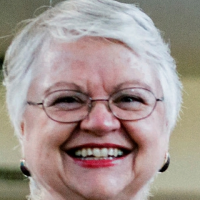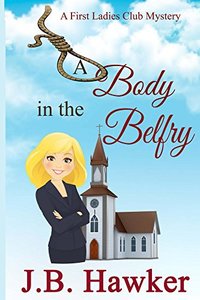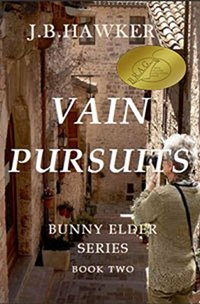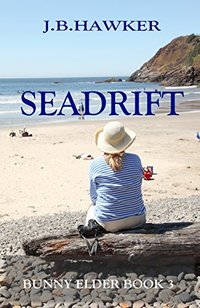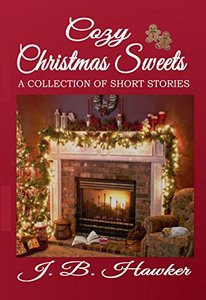J.B. Hawker Interview Published on: 29, Nov 2019
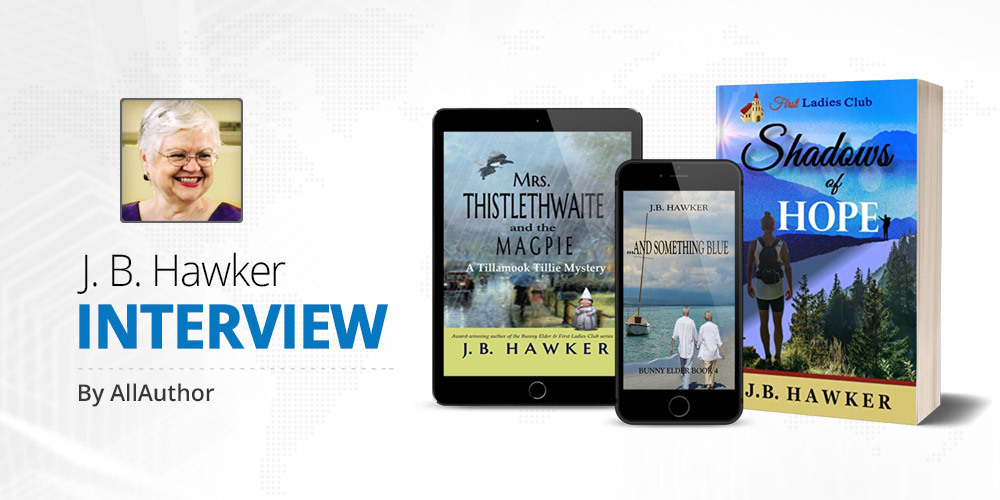 Since how long have you been living in the wilds of Northern California?
Since how long have you been living in the wilds of Northern California?
I was born and raised in the mountains and valley of rural Northern California. My tongue in cheek reference to “the wilds” was in response to the widely held notion that Northern California ends at the Bay Area. Those of us here in the “wilds” consider San Francisco and surrounds to be the northern edge of Southern California. Although I spent thirty years living in other states, I returned to my home county fourteen years ago.
Do you remember the first novel you read as a child and how it impacted your outlook on books and literature?I was an early reader with two older sisters, so I don’t remember the very first novel I read, but I do remember the first one I wrote. It was about a clock and I wrote it in the first grade. My mother was a great reader and gave us access to her vast library. I remember reading Ellery Queen, Frank G. Slaughter, and Frank Yerby right along with my Nancy Drew books. As a rather solitary child, the world of literature opened a window to the wider world and the rich variety of people and places outside my small town. It also gave me an appreciation for the power of words.
What is it about the women fiction genre that piqued your interest? What are some things to keep in mind while writing a women's fiction?“Write what you know” is always good advice. When I was inspired to write Hollow, my first published novel, I was writing about a woman’s feelings and reactions. Although I’ve had super reviews from the men who read my books, I feel that women are my main audience. I try to keep in mind what I would like to read. While not all women have the same tastes, the majority seem to have similar sensibilities, dreams, and experiences.
Your thoughts on conventional vs. self-publishing? What route did you choose and why?The publishing industry as a whole has undergone a transformation in the past ten years. When I submitted my first book to a publisher, it was common for publishers to promote and nurture the writers they signed. Today traditional authors must do almost as much of the promotional work as independent writers, so the advantage to traditional publishing is not as great, although the status remains. We all want to be recognized as “real” authors. I confess that I went the self-published path because I find rejection so hard to take. I’m too cowardly to keep sending out my precious creations into the harsh, cold world. As an independent writer, I publish my work and let it rise or fall based upon the opinions of my readers, not professionals who must concentrate on profits.
What is "Mrs. Thistlethwaite and the Whippersnapper" about and how did you come up with the idea for this book?In this book Matilda Thistlethwaite helps a young abused wife escape her situation. Mrs. T. is an octogenarian who works at making the most of every minute by constantly learning new things to keep her mind and body at their peak. She enrolls in a senior-citizens’ self- defense class and meets the troubled young wife between her class and one for young women and becomes instrumental in rescuing her.
Who is an author you really look up to and why?Jan Karon for her gentle faith and respectful treatment of her characters.
So far you have written a mystery, women fiction, suspense, and thriller. Which genre has been the most fulfilling to write and why?For the most part, I don’t think of genre when I begin a book, but of the story. It is necessary to put genre labels on the finished book for sales and promotions, so I try to see where each one fits most comfortably. I did write a short story collection, Cozy Christmas Sweets, where the stories are written in a variety of categories, i.e. classical mystery, whodunnit, romance, thriller, etc. I consider my main genre to be inspirational feel good Christian fiction.
What inspired you to write "Mrs. Thistlethwaite and the Magpie" and whom were the main characters modeled after?Mrs. Thistlethwaite appeared in the third book of the First Ladies Club series in a small role. I fell in love with her and decided she deserved a series of her own. I modeled her after a variety of remarkable elderly women I’ve known, plus the old lady I’d like to become one day.
If you ever get writer’s block, where do you go to overcome it or what activities help you overcome it?There are days when I can find absolutely anything else to do in order to avoid tackling my work-in-progress. I will decide my closets desperately need reorganizing, the garden needs to be weeded, or I may even start on a completely different writing project. The only way I’ve discovered to overcome this avoidance is to set a daily word count goal in my Scribner software and then slog away to meet it. I usually find myself caught up in the work once I get started, but I need that accountability. I even put a reminder on my daily calendar, so I can mark it off when I’m done.
Which of the many series that you are writing/have written has been the most challenging to write? Why?The Bunny Elder series is the one that strikes closest to the bone with me. Hollow simply flowed. I’ve often said that it was therapy for me, but, in truth, the whole series allowed me to work through some life issues. Making oneself vulnerable to be read by the public can be frightening, even though “the names have been changed to protect” either the innocent or the guilty.
What is one thing that you, as a fiction author, would never write about?I wouldn’t write explicit sex scenes, or what I consider “violence porn” graphic violence for its own sake. I would never write something where evil triumphs. I want my books to leave the reader feeling good.
What are some common traps that new authors tend to fall into? Any advice on how to avoid these traps?Although I’ve been writing for publication for ten years, I don’t consider myself an expert, by any means. I learn more about my craft and about myself with each book I write. I will say that new authors shouldn’t take bad reviews too much to heart. You never know the motives or filters of the critic, so give them the benefit of a doubt, don’t get defensive, and see if their criticism might have some validity or offer good advice for your future writing. Remember that they cared enough to post a review, so that’s something.
Is there anything you would like to say to your readers and fans? When can they expect a new book?I always want to say thank you to all my readers. I’m especially grateful to those who take the time to write to me or to post reviews of my books. I’m working on the fourth Tillamook Tillie book right now. Mrs. Thistlethwaite joins a community choir in this one. Readers with experience in volunteer singing groups may especially enjoy her musical adventures. I’m hoping to have it out next Spring.
How did you come to know about AllAuthor and when did you first sign up? Has the website met all your expectations?I found AllAuthor on the Internet a few years ago and I’m so glad I did. It is becoming more helpful to me as an author, all the time.
Share J.B. Hawker's interview
J.B. Hawker was born and raised in the mountains and valley of rural Northern California. She has been writing for publication for ten years. After twenty years serving small churches from Alaska to South Dakota as a pastor's wife, she returned to her California roots to start over in mid-life as a single business woman and author. She is working on the fourth Tillamook Tillie book right now. She wants her books to leave the reader feeling good.
 A Christmas Tree Mystery: A Bunny Elder Story (Bunny Elder Adventures)
Genre: Women's Fiction, Christian Fiction
A Christmas Tree Mystery: A Bunny Elder Story (Bunny Elder Adventures)
Genre: Women's Fiction, Christian Fiction
 Mrs. Thistlethwaite and the Okay Chorale (Tillamook Tillie)
Genre: Mystery, Women's Fiction, Christian Fiction
Mrs. Thistlethwaite and the Okay Chorale (Tillamook Tillie)
Genre: Mystery, Women's Fiction, Christian Fiction
 Mrs. Thistlethwaite and the Magpie: A Tillamook Tillie Mystery (Mrs. Thistlethwaite Mysteries Book 1)
Genre: Mystery, Women's Fiction, Christian Fiction
Mrs. Thistlethwaite and the Magpie: A Tillamook Tillie Mystery (Mrs. Thistlethwaite Mysteries Book 1)
Genre: Mystery, Women's Fiction, Christian Fiction
 Mrs. Thistlethwaite and the Whippersnapper: A Tillamook Tillie Story
Genre: Women's Fiction, Christian Fiction
Mrs. Thistlethwaite and the Whippersnapper: A Tillamook Tillie Story
Genre: Women's Fiction, Christian Fiction
 Mrs. Thistlethwaite and a Shadow of Doubt: A Tillamook Tillie Mystery
Genre: Mystery, Women's Fiction, Christian Fiction
Mrs. Thistlethwaite and a Shadow of Doubt: A Tillamook Tillie Mystery
Genre: Mystery, Women's Fiction, Christian Fiction
 ...and Something Blue (Bunny Elder Adventures Book 4)
Genre: Suspense, Women's Fiction, Christian Fiction
...and Something Blue (Bunny Elder Adventures Book 4)
Genre: Suspense, Women's Fiction, Christian Fiction
 Cozy Campfire Shorts: Spooky Tales with a Cozy Spin to Share Around the Campfire
Genre: Suspense, Mystery
Cozy Campfire Shorts: Spooky Tales with a Cozy Spin to Share Around the Campfire
Genre: Suspense, Mystery
